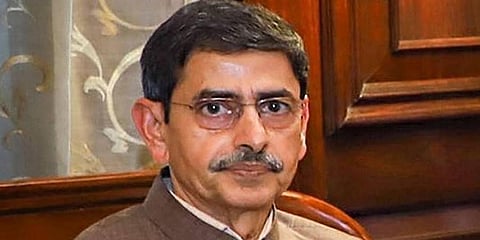

CHENNAI: Why did Governor RN Ravi return the NEET Bill to the State Assembly? According to his communication to the Speaker while returning the Bill, his principal objection is that AK Rajan committee report, on which the Bill is based, is “utterly unconvincing”. He said the report reflected the “ jaundiced view” of the high-level panel. Besides, he heavily relied on the Supreme Court verdict upholding NEET in Christian Medical College Vellore Association vs Union of India.
“When SC has found NEET to be in the national interest and for the protection of the weaker sections of society, will it be open for the State government to seek an exemption from NEET, particularly in view of the fact that the same has been held to be mandatory and applicable across the country?” he asked.
Stating the Bill, exempting the State from the medical entrance test, is not in the interest of Tamil Nadu’s students and the House needs to deliberate in detail on these issues, the Governor said he was returning the Bill as per Article 200 of the Constitution. Speaker M Appavu read out the communication in the House during the special session to pass the Bill again on Tuesday.
The Governor said the Rajan report, on the impact of NEET on medical admissions in TN, is based on several unsubstantiated sweeping assumptions. These “assumptions” include that NEET is directionless and anti-merit, enables and empowers comparatively low-performing students to get medical admission, paves way for entry of poorly-skilled but financially and socially strong candidates, causing the medical profession to be dominated by poor quality professionals, discourages complex thinking and higher order of skills compared to the State board examinations.
The Governor disputed the report’s claim that NEET is biased in favour of physics, chemistry and biology instead of being open to testing “all possible knowledge” as in the State board examinations. “It is beyond argument that the medical profession is a highly specialised discipline of science in which a reasonably sound knowledge of the basics of physics, chemistry and biology is a prerequisite. The Report taking adverse note of tests in these essential subjects and instead introducing an undefined concept of “all possible knowledge” appears bizarre and without merit,” he said.
Data cited in the report show, before NEET, under one per cent of government school students got into government medical colleges. “It reflects the sorry state of affairs in the government schools, which cater mostly to the poor students. Ignoring this crucial fact coming in the way of social justice, the report instead goes off the tangent and blames NEET.”
Referring to the report’s argument that NEET “favours” rich students who take advantage of coaching, he said, “The report has totally ignored the fact that coaching skews State board results also.”
The Governor quoted portions of the SC verdict and said the court had examined threadbare the prescription of NEET. “The SC held NEET is definitely prescribed to improve medical education, co-related to the improvement of public health and is a step in furtherance of the duty of the State enshrined in the directive principles of State policy contained in Article 47 of the Constitution.”
Citing Article 46, the verdict said, “By prescription... of NEET, the interest of their merit is also equally protected and its aims of preventing various malpractices...” “Prescription of NEET is to provide equal opportunity and level launching platform to an individual to perform his duty as enshrined in Article 51-A(j),” he said, referring to the verdict.